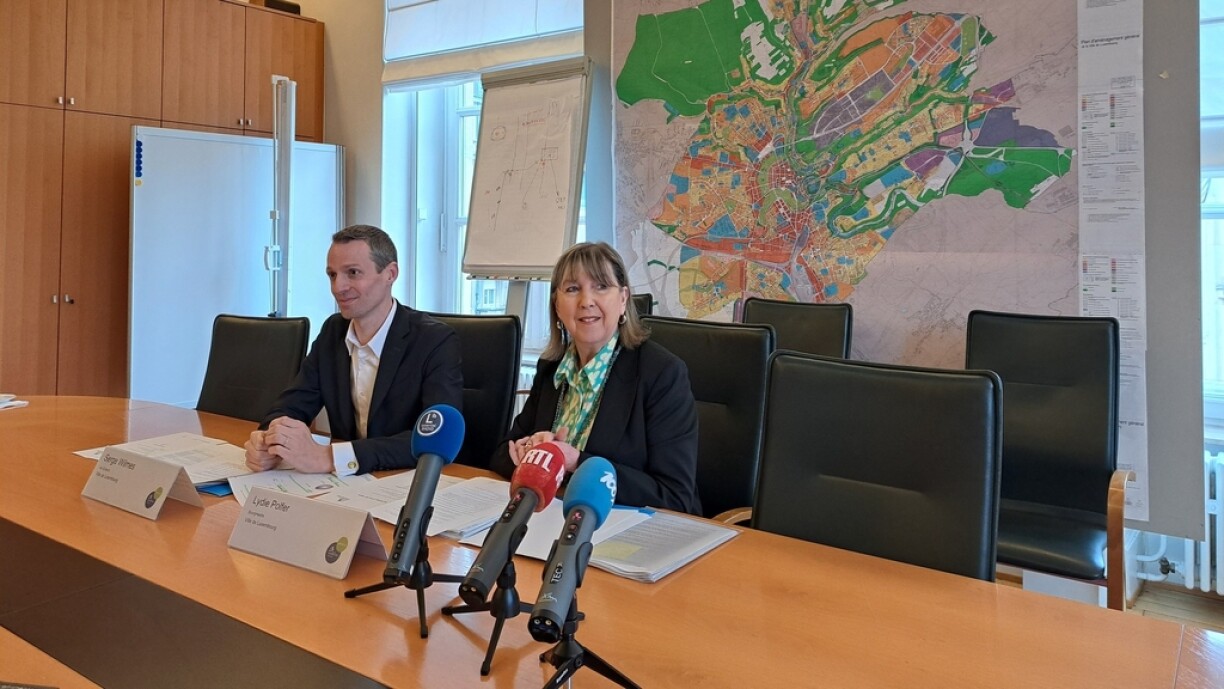
During the City Breakfast on Wednesday morning, journalists asked local officials how they plan to implement such a ban. It appears that details are still unclear, as the capital’s municipal executive merely stated that people will still be allowed to sit on the ground but may no longer ask for money. They stressed that doing nothing against “organised gangs” is not an option either.
Mayor Lydie Polfer and First Alderman Serge Wilmes acknowledged that a general ban would also affect those who are not part of an organised network of beggars. Polfer and Wilmes pointed out that there are “other services” that help people in need.
The journalists present at the meeting inquired multiple times about how the city intends to enforce the ban. It has already been decided that only the police will have the authority to check whether someone is begging for money. If that is the case, officers may ask for identification and issue a fine. In response, one of the journalists asked to which address the fine would be sent if a person is homeless.
“Let’s all address this question to the police and the judicial authorities,” the mayor replied, stating that the city can only do what it is allowed to do. In this case, this means drafting a regulation – even if there are still uncertainties. Polfer stressed several times that “doing nothing is not an option either” and that the municipality is also expanding its offer for people in need. “Nobody needs to sleep outside,” according to Wilmes. The begging ban is “a first attempt at doing something against these organised gangs,” but local officials noted that similar measures could be implemented “at the national level.”
The question still remains why the municipality is targeting everyone if the goal is to fight organised begging. In fact, group begging has been banned in the capital for several years. However, the members of the municipal executive argue that this regulation “didn’t achieve anything” because “it’s difficult to crack down on these organised gangs.” Wilmes claimed that their members “have adapted and are now begging by themselves.”
The local officials stated that the begging ban is not aimed at the affected individuals, but rather at the act itself. The ban is meant to “crack down on a form of human trafficking,” in which “people are brought to Luxembourg City specifically to beg others for money.”
Another topic addressed at City Breakfast was the installation of 24 cameras at Hamilius, a project that the city council will vote on next Monday. The cameras are expected to be operational by summer 2023. Furthermore, the authority of municipal agents will be expanded, enabling them, for example, to intervene when people do not clean up after their dogs. Because this will increase the workload for the municipality’s 79 agents, the local officials intend to hire four more.